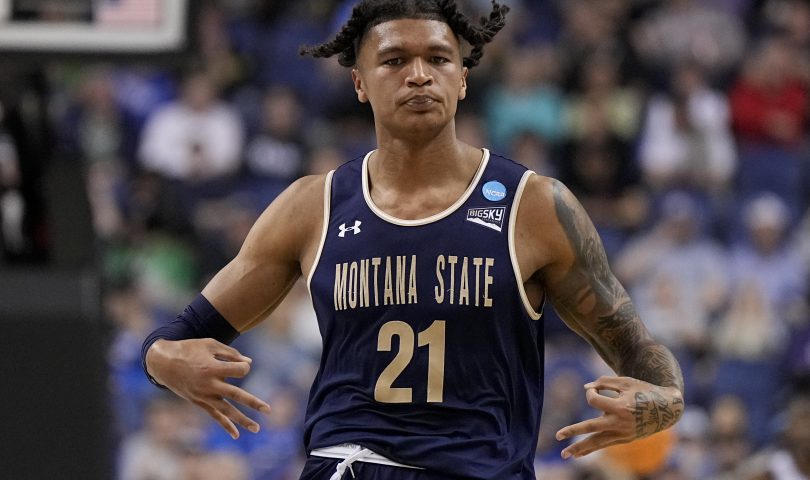MORGANTOWN — The NCAA Committee for Legislative Relief handed the WVU men’s basketball team a devastating blow Tuesday.
The committee denied the school’s appeal for immediate eligibility for senior forward RaeQuan Battle, meaning he will have to sit out this season after transferring in from Montana State last April.
Battle’s eligibility waiver was first denied by the NCAA on Oct. 23. The school appealed the decision to the legislative relief committee, which has the final say in such matters. There is no further appeal process.
“On behalf of West Virginia University Intercollegiate Athletics, we believe the NCAA has made a grave mistake and misjudgment with regard to first denying RaeQuan Battle’s request for a waiver and now in his eventual appeal,” WVU said in a statement. “Both denials have produced nothing but hardship and penalty.”
Battle needed a waiver to play this season, because he has yet to earn a college degree and had already used his free transfer.
He began his career at the University of Washington in 2019, before transferring to Montana State in 2021. With his appeal being denied, WVU has the option of redshirting Battle this season and he could use his final season of eligibility with the Mountaineers next season.
WVU pushed for a waiver under the guidelines set forth by the NCAA last March that included an exception, “For reasons related to the student-athlete’s physical or mental well-being.”
Eilert has gone on record before stating Battle needs basketball in his life and that he would worry about the player’s well-being is he was unable to play this season.
Battle’s background as an American Indian is filled with adversity.
In 2013, when Battle was still in middle school, his cousin, who was raised right alongside Battle and his four brothers, committed suicide.
A year later, there was a mass shooting at Marysville-Pilchuck High — the school Battle attended — in which five people were killed, including the shooter. Battle was related to the shooter.
According to a letter sent by state Attorney General Patrick Morrissey to the NCAA, Battle has also had to deal with a number of COVID-19 deaths among family members and members of his tribe in the state of Washington.
“The intent of the transfer waiver process is to provide relief for extenuating and extraordinary circumstances that are outside the control of the student-athlete,” WVU’s statement continued. “There is no question that RaeQuan’s case clearly calls for a waiver so that he can continue his academic and athletic career on a positive tract. Despite overwhelming evidence that RaeQuan clearly meets the established criteria for relief, the NCAA’s decision to deny does nothing but penalize a student-athlete for negative situations and environments that others have caused him.”
WVU’s statement also said it “confused and saddened” by the process that has approved some athletes for immediate eligibility, while denying others.
“Disappointed, disheartened and certainly frustrated are the emotions our entire basketball program is dealing with right now due to this short-sighted decision,” the statement read. “It has already been requested by the Division I Board of Directors to review the existing transfer rules and waiver guidelines. Furthermore, the chair of the board was specifically quoted stating the NCAA would ‘continue to view student-athlete well-being and mental health as a priority for the Association.’
“RaeQuan clearly meets the criteria, but once again the NCAA has failed to do the right thing for the well-being and mental health of the student-athlete. The right thing would improve the life of a young student-athlete and correct his path to academic and athletic success.”
WVU went through the same process a year ago with guard Jose Perez, who also had his waiver and appeal denied. Perez was later removed from the roster for a team violation.
In its statement, WVU did not say if the appeal committee gave any specific reasons for denying Battle’s waiver for eligibility.




